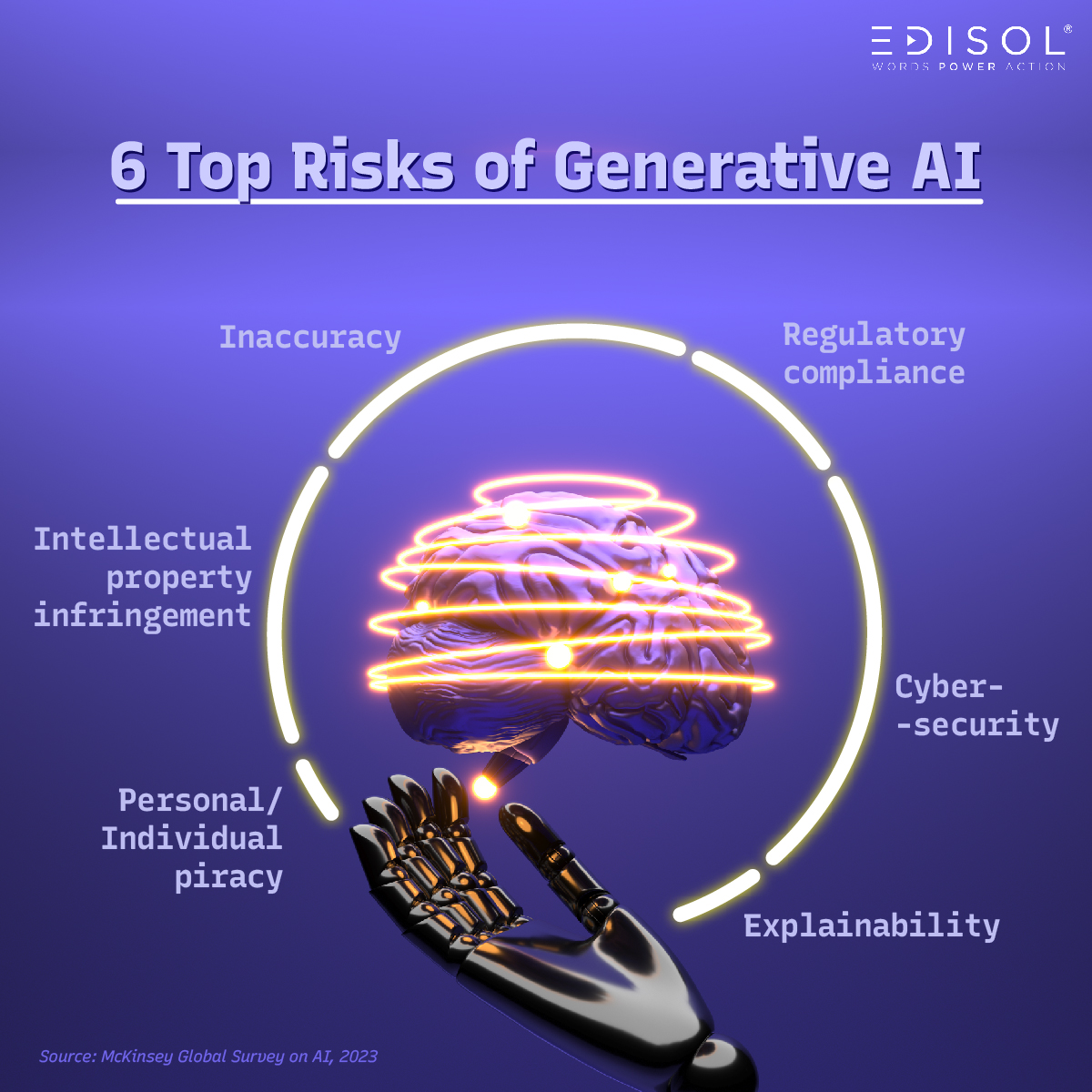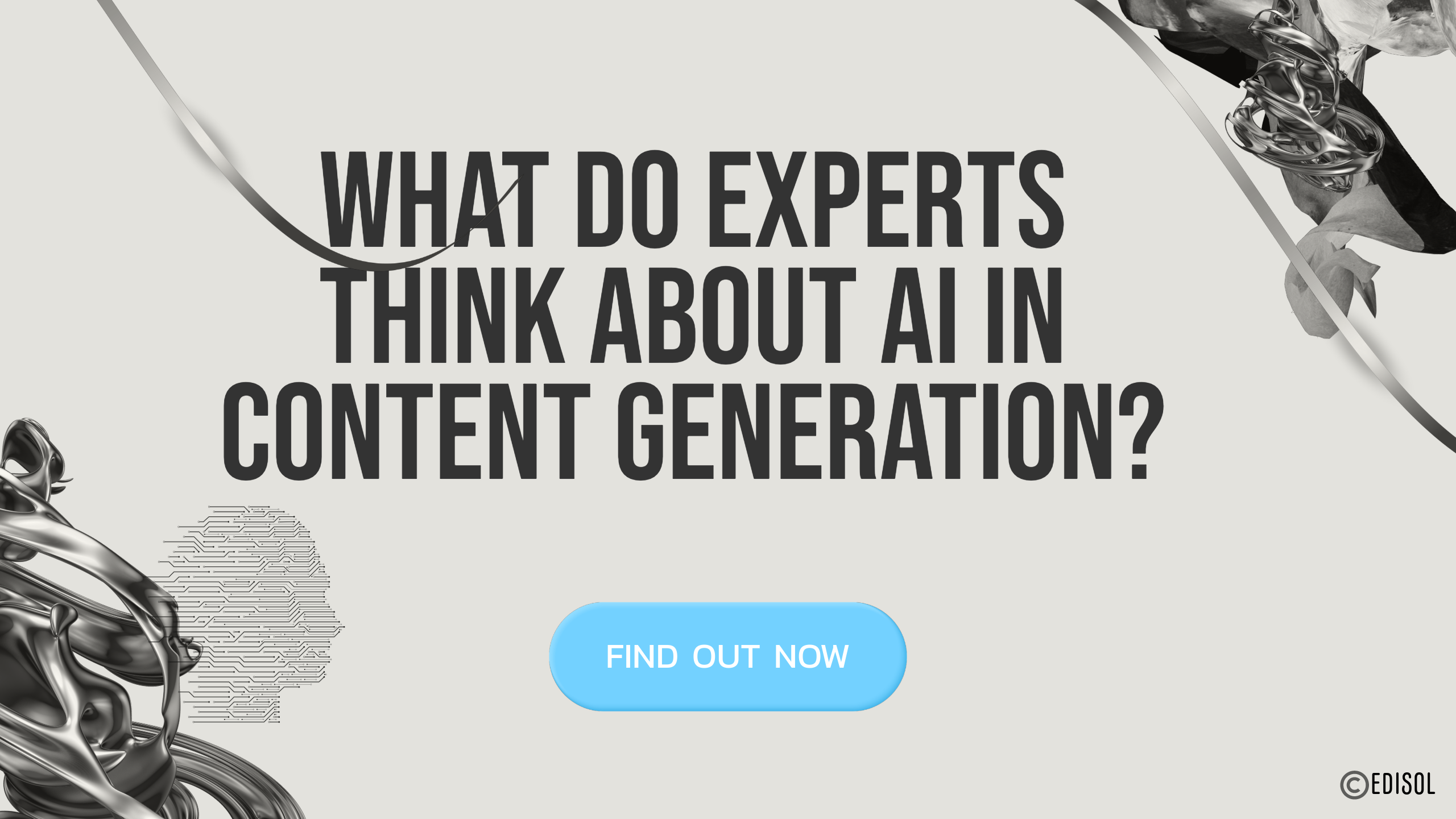The advent of generative Artificial Intelligence (AI) technology is no less powerful than releasing the proverbial genie out of a magical lamp. In less than a year, AI-powered chatbots like ChatGPT, Google AI Bard, Claude, and Pi have shown just what artificial intelligence can do.
These large language models (LLMs) have opened a world of new possibilities for marketers, be it for social media campaigns or blogs and webpages. In fact, experts believe that the global market value of AI in marketing is expected to grow to $64.31 billion by 2027.
However, this does not mean that these tools are free from their share of complications. The past year has revealed numerous vulnerabilities, prompting scientists, users, and policymakers to think deeply about these new tools.
Read on to know what experts think about the positives and negatives of today’s Generative AI.
Generative AI Won’t Put Human Writers Out of Business
As per a Capterra study of 2022, 33% of marketers already use Artificial Intelligence (AI) and Machine Learning (ML) software to create content. One reason is that using AI for content creation has proved to be much faster and cheaper. But this has also raised speculations about whether AI may replace real human writers.
While there’s no denying that AI can generate content at a pace at which no human can, it can’t replace human experts and writers.
No piece of content, whether a social media marketing copy, a blog, or a research article, would be complete without a check and polish from a human expert. Generative tools can do a lot, but can AI compete with a human’s creativity?
As Samanyou Garg, Founder and CEO of Writersonic, has said, “I don’t think people will be losing jobs. But the menial work, the things that can be easily done, both in terms of cost efficiency and productivity, if a bot or AI does that, then you have a lot more time building your skill sets and focusing on more important things.”
Humans More Likely to Retain ‘Human Favouritism’ Over AI-Generated Content
Analysing how their target audience perceives AI-generated content is an important aspect for marketers looking to leverage it fully. Experts believe that the discourse around AI adoption is largely focused on the workforce. For instance, how AI will improve productivity and what jobs will become obsolete.
However, Yunhao Zhang, a researcher at the Psychology of Technology Institute, says, “This is the supply side of the equation, but there has been very little discussion about the demand side. Ultimately, the work that AI does will be judged by whether or not consumers like it.”
Zhang, along with MIT Sloan senior lecturer Renee Richardson Gosline, studied how customers perceive AI-generated content compared to human work. As per their survey, people preferred AI-generated content when they had no knowledge about which approach was used in creating that content. “Generative AI is showing that it can be as good as or better than humans at these kinds of persuasive tasks,” Zhang concluded.
However, the other group of participants who knew about the source of the content showed an apparent ‘human favouritism’. In simple words, they chose the content in which humans played a part in the creation process. Thus, researchers concluded that humans will retain a bias towards human work, which will give an edge to content created by humans.

Deepfakes and Ethical Concerns Will Rise in the Future
As cyberpsychologist Michelle Murray says, “Artificial intelligence may change our world and technological advancements are always welcome. However, we can’t assume that these technologies will always be positive…”
We are already seeing how AI-generated content is marred with several legal and ethical concerns as well as misinformation and gaps in logic. However, it doesn’t stop there.
Deepfakes, or the images and videos that seem realistic but are fake, are already posing a challenge.
Generative Artificial Intelligence has also raised concerns about what constitutes original content. The creators of generative AI argue that the content created by AI software and bots belongs to the prompt creators as the created text or images are not similar to existing content. However, experts believe that the new content is derivative of existing text and images.
It is undeniable that we are just scratching the surface when it comes to the development of generative AI technologies. “It is essential that legislation and resourced law enforcement are available to tackle the bad actors who could use the advancements in AI to their advantage,” Murray has said, talking about probable solutions.
For instance, to combat deepfake campaigns, OpenAI has begun watermarking the images with a distinctive symbol, allowing the general public to identify such images.
Generative AI Could Add Trillions of Dollars to the Global Economy
Deutsche Bank’s recent dossier has rightly pointed out, “AI will not only change the way we live and work in the future, it will also have a significant impact on companies and entire industries.” AI’s impact is not just deep but also broad, as per the report, and by using AI technologies in content generation, organisations can develop intelligent content and add value.
“We see it everywhere, in the fashion industry, agriculture (smart farming), heavy industry, and in public services,” the report adds. The permeation of AI advancements across different sectors is sure to have a positive impact on the global economy.
For instance, McKinsey, in one of its surveys, studied 63 use cases of generative AI technologies and found that it has the potential to add about US$2.6 trillion to US$4.4 trillion to the global economy.
To provide perspective, the 2022 Nominal GDP (in USD) of India, the fifth-largest economy in the world, was $3.39 trillion. The report believes that the impact would double if they had included the impact of generative AI embedded in the software being used today beyond those 63 use cases.
The era of generative AI has just begun, and we still have a lot to see what it has to offer. Just as we cannot imagine computing without a keyboard, experts are of the view that content generation will be unimaginable without artificial intelligence one day.
For now, content creators, marketers, policymakers, and the general public will have to wait and see what the next wave of transformation in AI will bring to the content generation process. Whether you choose to harness AI today or not, to boost your SERP performance and level up your content, connect with us.




